How Mandela’s flair helped shape rugby in a new SA
by Staff Writer
2013-12-06 06:25:47.0
THE moment on June 24 1995 when Nelson Mandela, sporting a Springbok No 6 jersey, handed over the William Webb Ellis trophy to Rugby World Cup-winning captain Francois Pienaar remains etched in the hearts and minds of South Africa’s rugby faithful.
The event was even recreated by Hollywood, in the form of director Clint Eastwood’s 2009 film Invictus.
"Madiba magic should never be underplayed. It is real," says former Springbok captain and hooker John Smit.
Mandela’s influence off the field was an important driving force in changing rugby into the interracial sport it is today, he says.
"I think rugby would have transformed eventually. But Mandela’s influence fast-tracked the transition exponentially. The way he embraced the players, the game and the Bok badge had a huge influence in where the game is today," Smit says.
The game has made a long journey from a symbol of racist apartheid to the all-round popular sport it now is. Without Mandela’s support, that journey would have been harder.
"South African rugby owes its position in the world to Nelson Mandela. Whereas many other politicians would have lobbied for rugby’s destruction because it was seen as a racist sport, Mandela saw it as an opportunity to bring black and white together," says South African Rugby Union (Saru) president Oregan Hoskins.
The past 15 years have been littered with magical moments where Madiba offered his support to the team — often with typical flair.
"The 1995 Rugby World Cup final is the day most people remember," former Saru president Louis Luyt told Business Day before his death in February this year.
"But Mandela made his presence felt in 1994 already when the Springboks hosted England at Loftus Versfeld. Despite Loftus being the heartlands of the Afrikaners, Mandela was cheered and everyone queued up to shake his hand. We lost the game 32-15 and I could see the disappointment on his face. He immediately asked what I was going to do to correct that."
An event players remember is his surprise appearance at the Nelson Mandela Challenge Plate match between South Africa and Australia at Ellis Park in 1995.
"I will never forget the clash against Australia at Ellis Park in 1995," the usually soft-spoken Smit says with great excitement. "We had just finished our warm-up and ran into the tunnel for the pre-match team talk. But to our surprise Madiba was sitting on a golf cart between the stairs to the team change rooms.
"Everyone was overwhelmed by his presence … The Australian players battled to get to their change room because of all the commotion. But when they got a glimpse of what was really happening, they couldn’t believe their eyes."
In 2007, Mandela invited the Springbok Rugby World Cup squad to visit his hotel in Paris. A year on, he invited the Springboks a special function at the Nelson Mandela Foundation offices in Johannesburg to celebrate his 90th birthday.
In a time of political turbulence, Mandela also gave the game a level of protection. It was he who granted rugby special dispensation in the early 1990s to retain the Springbok identity when all other sports were ordered to drop their badges and titles.
But it is the 1995 Rugby World Cup final that stands out.
"Mandela arrived at the Springbok training camp in Cape Town before the World Cup and asked for a No 6 jersey," Luyt said. "So we had a special jersey made for him. The morning of the final I received a call from his office asking if the president could wear the Springbok jersey to the game. That was magical. When he walked on the field, you could see he had touched the hearts and minds of the entire nation."
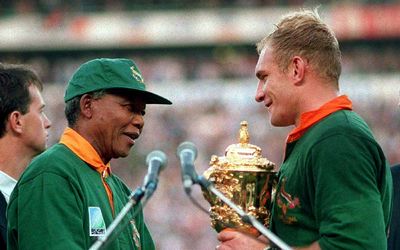
Former President Nelson Mandela (left) presents the William Webb Ellis Cup to Springbok captain Francois Pienaar after his team defeated New Zealand in the Rugby World Cup final played at Ellis Park in Johannesburg, in this June 24 1995 file photo. Picture: REUTERS
THE moment on June 24 1995 when Nelson Mandela, sporting a Springbok No 6 jersey, handed over the William Webb Ellis trophy to Rugby World Cup-winning captain Francois Pienaar remains etched in the hearts and minds of South Africa’s rugby faithful.
The event was even recreated by Hollywood, in the form of director Clint Eastwood’s 2009 film Invictus.
"Madiba magic should never be underplayed. It is real," says former Springbok captain and hooker John Smit.
Mandela’s influence off the field was an important driving force in changing rugby into the interracial sport it is today, he says.
"I think rugby would have transformed eventually. But Mandela’s influence fast-tracked the transition exponentially. The way he embraced the players, the game and the Bok badge had a huge influence in where the game is today," Smit says.
The game has made a long journey from a symbol of racist apartheid to the all-round popular sport it now is. Without Mandela’s support, that journey would have been harder.
"South African rugby owes its position in the world to Nelson Mandela. Whereas many other politicians would have lobbied for rugby’s destruction because it was seen as a racist sport, Mandela saw it as an opportunity to bring black and white together," says South African Rugby Union (Saru) president Oregan Hoskins.
The past 15 years have been littered with magical moments where Madiba offered his support to the team — often with typical flair.
"The 1995 Rugby World Cup final is the day most people remember," former Saru president Louis Luyt told Business Day before his death in February this year.
"But Mandela made his presence felt in 1994 already when the Springboks hosted England at Loftus Versfeld. Despite Loftus being the heartlands of the Afrikaners, Mandela was cheered and everyone queued up to shake his hand. We lost the game 32-15 and I could see the disappointment on his face. He immediately asked what I was going to do to correct that."
An event players remember is his surprise appearance at the Nelson Mandela Challenge Plate match between South Africa and Australia at Ellis Park in 1995.
"I will never forget the clash against Australia at Ellis Park in 1995," the usually soft-spoken Smit says with great excitement. "We had just finished our warm-up and ran into the tunnel for the pre-match team talk. But to our surprise Madiba was sitting on a golf cart between the stairs to the team change rooms.
"Everyone was overwhelmed by his presence … The Australian players battled to get to their change room because of all the commotion. But when they got a glimpse of what was really happening, they couldn’t believe their eyes."
In 2007, Mandela invited the Springbok Rugby World Cup squad to visit his hotel in Paris. A year on, he invited the Springboks a special function at the Nelson Mandela Foundation offices in Johannesburg to celebrate his 90th birthday.
In a time of political turbulence, Mandela also gave the game a level of protection. It was he who granted rugby special dispensation in the early 1990s to retain the Springbok identity when all other sports were ordered to drop their badges and titles.
But it is the 1995 Rugby World Cup final that stands out.
"Mandela arrived at the Springbok training camp in Cape Town before the World Cup and asked for a No 6 jersey," Luyt said. "So we had a special jersey made for him. The morning of the final I received a call from his office asking if the president could wear the Springbok jersey to the game. That was magical. When he walked on the field, you could see he had touched the hearts and minds of the entire nation."


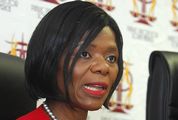
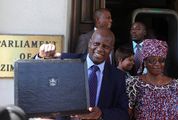
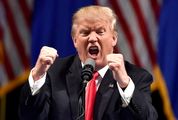
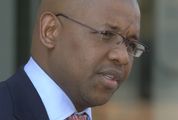


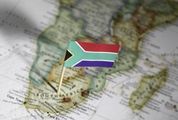

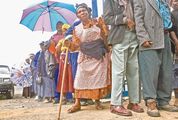
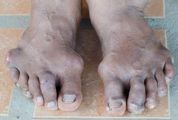
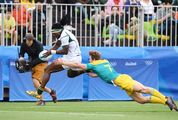
 News and views on the death, and life, of former president Nelson Mandela
News and views on the death, and life, of former president Nelson Mandela




